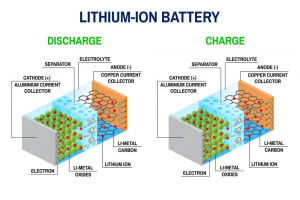1. The Scientific Basis of Battery Charging and Discharging
At the core of every battery lies an electrochemical system where energy is stored in chemical bonds and released as electrical current. During discharge, ions move through the electrolyte and electrons travel through an external circuit to provide usable power. Charging reverses this process by driving ions back to their original positions using controlled electrical energy. However, the efficiency and safety of this process depend heavily on precision. A battery charger discharger does more than simply provide current; it actively regulates voltage, monitors temperature, and adapts charge profiles to match the unique requirements of different battery chemistries. By maintaining balanced current flow and preventing harmful states such as overcharge, deep discharge, or thermal runaway, these devices preserve cell structure and ensure consistent energy delivery. This level of control is particularly important in industrial power systems, renewable energy storage, and electric mobility, where battery reliability is mission-critical.

2. Mainstream Battery Chemistries and Technical Comparisons
The global energy market relies on several major types of rechargeable batteries, each with distinct properties and applications:
- Lead-Acid Batteries – These are widely used in uninterruptible power supplies (UPS), grid support, and heavy machinery because of their cost-effectiveness and robustness. However, they are sensitive to sulfation if not properly maintained.
- Lithium-Ion Batteries – Featuring high energy density, excellent cycle life, and rapid charging capabilities, these have become the preferred solution for electric vehicles, consumer electronics, and advanced energy storage systems. Strict voltage management is essential to prevent capacity degradation or safety risks.
- Nickel-Metal Hydride (NiMH) Batteries – Offering stable performance and lower environmental impact compared to older nickel-cadmium cells, NiMH is still used in hybrid vehicles and household devices, though its energy density is lower than lithium-ion.
Each battery chemistry requires its own optimized charging and discharging protocol. A professional battery charger discharger can automatically adjust current rates, voltage thresholds, and cutoff points to match these unique characteristics. This flexibility not only improves testing accuracy in laboratories and production facilities but also ensures compliance with international safety and performance standards.
3. Charge-Discharge Cycling and Strategies for Longer Battery Life
Battery life is largely determined by how effectively charge-discharge cycles are managed. Rapid charging at excessive current, incomplete charging, or discharging to extreme depths all accelerate capacity fade. Furthermore, temperature extremes—either too high or too low—can permanently damage cells or reduce their usable lifespan. Using an advanced professional battery charger discharger, engineers and technicians can simulate real-world duty cycles, apply tailored charging algorithms, and continuously monitor parameters such as internal resistance, voltage stability, and heat generation.
By optimizing the depth of discharge (DoD) and maintaining batteries within an ideal state of charge (SoC), energy storage systems can achieve thousands of stable cycles with minimal degradation. This data-driven approach is especially important for renewable energy installations, telecom backup power, and electric vehicle fleets, where reliability and cost efficiency are paramount. In addition, programmable testing equipment provides valuable feedback during research and development, helping manufacturers design next-generation cells with improved safety margins and energy performance.
4. HD Power Test – Global Supplier of Advanced Battery Charging and Discharging Solutions
HD Power Test is committed to delivering high-performance load banks, battery testers, and electrical test equipment to clients across Europe, North America, Asia-Pacific, and beyond. Our systems are designed for precision current control, multi-channel operation, and fully automated data acquisition. With modular software platforms, users can configure custom charging profiles, record real-time performance metrics, and generate detailed reports for quality validation.

Our equipment supports a wide range of applications—from laboratory research and prototype evaluation to high-volume production line testing and field maintenance. Built with advanced safety protections such as overvoltage cutoff, short-circuit prevention, and active thermal management, HD Power Test products comply with international standards and meet the rigorous demands of industrial environments.
By integrating intelligent control technology with high-accuracy measurement, HD Power Test enables companies to maximize the efficiency, safety, and durability of their energy storage solutions. Whether you are developing new battery technologies, validating product performance, or performing large-scale lifecycle testing, our professional battery charger discharger platforms deliver reliable results you can trust.





